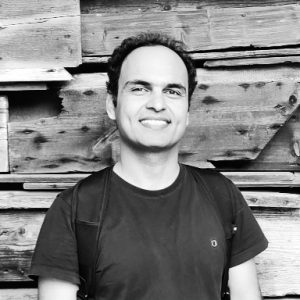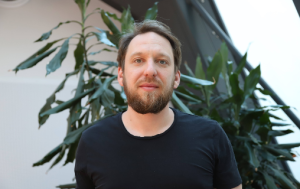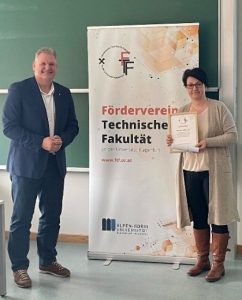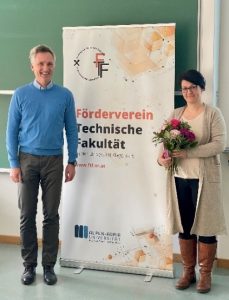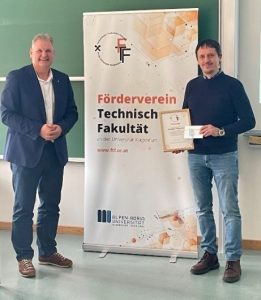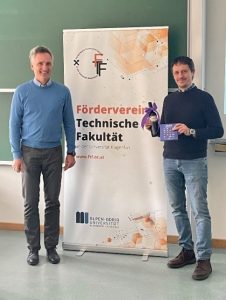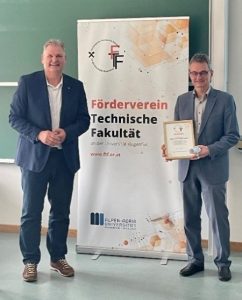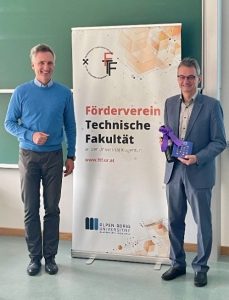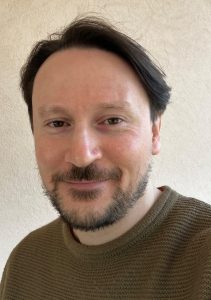Monday, September 23, 2024 | 05:00 pm (CET) | Room: S.2.42 | Alpen-Adria Universität Klagenfurt
Prof. Lea Skorin-Kapov | University of Zagreb
Abstract: Emerging eXtended Reality (XR) technologies have been recognized as a key enabler for the design of novel immersive experiences, often relying on the fusion of the digital and physical worlds. In particular, social and collaborative XR services enabling users to meet and interact in immersive environments have the potential of leading to an evolutionary step in communication services. Among the key technologies and infrastructures needed to meet the requirements of emerging XR use cases, there is a need for high bandwidth and low-latency networks, as well as remote computing for processing and rendering deployed on cloud and edge infrastructures. In this talk we will outline emerging XR applications and implications on future network requirements. We will discuss ongoing standardization efforts and technology enablers for XR in 5G and beyond, and discuss industry forecasts which envision XR to be the next mass market mobile computing platform. The talk will also briefly present the ongoing research project DIGIPHY – XR Communication and Interaction Through a Dynamically Updated Digital Twin of a Smart Space, conducted in cooperation between the Faculty of Electrical Engineering and Computing at the University of Zagreb and partner companies Ericsson Nikola Tesla and Delta Reality.
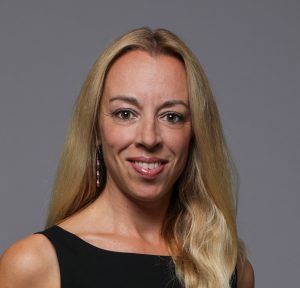 Bio: Lea Skorin-Kapov is Full Professor and head of the Multimedia Quality of Experience Research Lab (MUEXLab) at the University of Zagreb Faculty of Electrical Engineering and Computing (FER). Her primary research interests include Quality of Experience assessment and modelling of immersive services and applications, and cross-layer management of QoS/QoE in networks. She teaches courses at bachelor, masters, and doctoral levels dealing with multimedia services, heuristic optimization methods, and communication networks. She received her Dipl.-Ing., M.S., and Ph.D. degrees in Telecommunications from FER at the University of Zagreb, Croatia, in 2001, 2004, and 2007, respectively. From 2001-2009 she was employed in the Research and Development Center of Ericsson Nikola Tesla, Zagreb, Croatia, doing research on QoS signaling, negotiation, and adaptation for multimedia services. Since 2010 she has been employed at the Department of Telecommunications, FER. She has been involved in numerous research and industry funded projects and is currently principal investigator for the project „XR Communication and Interaction Through a Dynamically Updated Digital Twin of a Smart Space“ funded by the EU through the National Recovery and Resilience Plan. She has published over 100 scientific papers, serves on the editorial board of IEEE Transactions on Network and Service Management, and has served as guest editor for a number of journals such as Elsevier Computer Networks, IEEE Journal of Selected Topics in Signal Processing, and ACM Transactions on Multimedia Computing, Communications, and Applications. She is a senior member of IEEE and from 2019-2022 served as Chapter chair of the IEEE Communications Society – Croatia Chapter.
Bio: Lea Skorin-Kapov is Full Professor and head of the Multimedia Quality of Experience Research Lab (MUEXLab) at the University of Zagreb Faculty of Electrical Engineering and Computing (FER). Her primary research interests include Quality of Experience assessment and modelling of immersive services and applications, and cross-layer management of QoS/QoE in networks. She teaches courses at bachelor, masters, and doctoral levels dealing with multimedia services, heuristic optimization methods, and communication networks. She received her Dipl.-Ing., M.S., and Ph.D. degrees in Telecommunications from FER at the University of Zagreb, Croatia, in 2001, 2004, and 2007, respectively. From 2001-2009 she was employed in the Research and Development Center of Ericsson Nikola Tesla, Zagreb, Croatia, doing research on QoS signaling, negotiation, and adaptation for multimedia services. Since 2010 she has been employed at the Department of Telecommunications, FER. She has been involved in numerous research and industry funded projects and is currently principal investigator for the project „XR Communication and Interaction Through a Dynamically Updated Digital Twin of a Smart Space“ funded by the EU through the National Recovery and Resilience Plan. She has published over 100 scientific papers, serves on the editorial board of IEEE Transactions on Network and Service Management, and has served as guest editor for a number of journals such as Elsevier Computer Networks, IEEE Journal of Selected Topics in Signal Processing, and ACM Transactions on Multimedia Computing, Communications, and Applications. She is a senior member of IEEE and from 2019-2022 served as Chapter chair of the IEEE Communications Society – Croatia Chapter.

